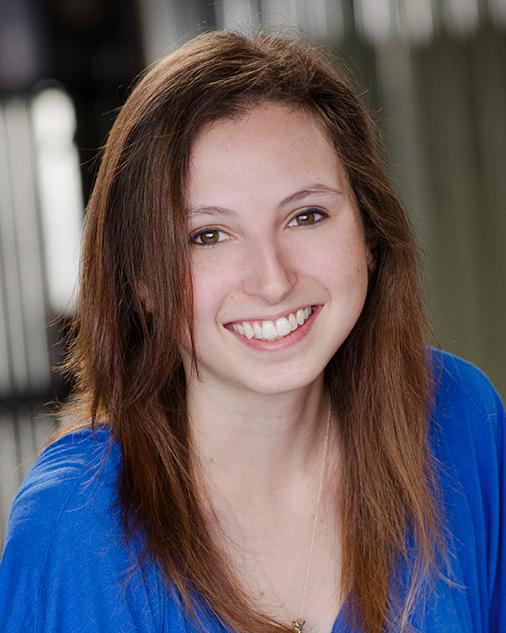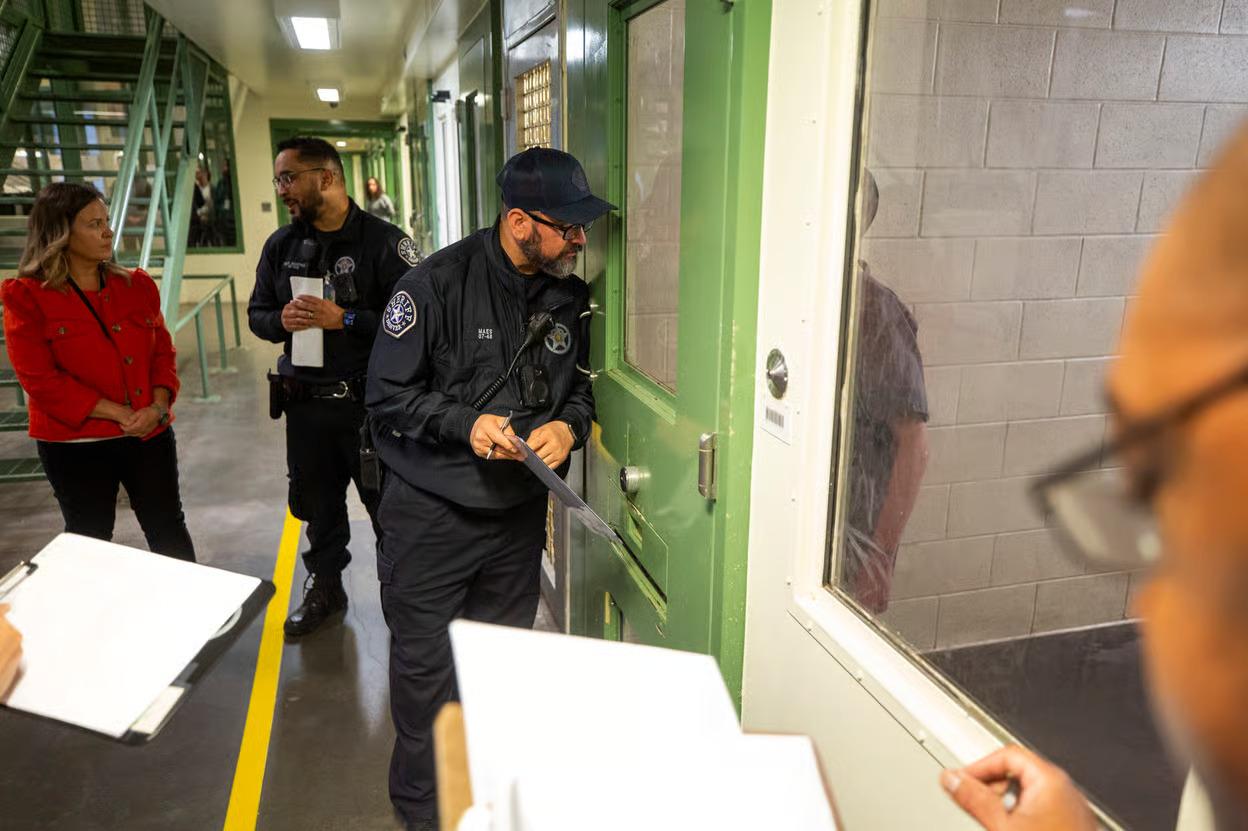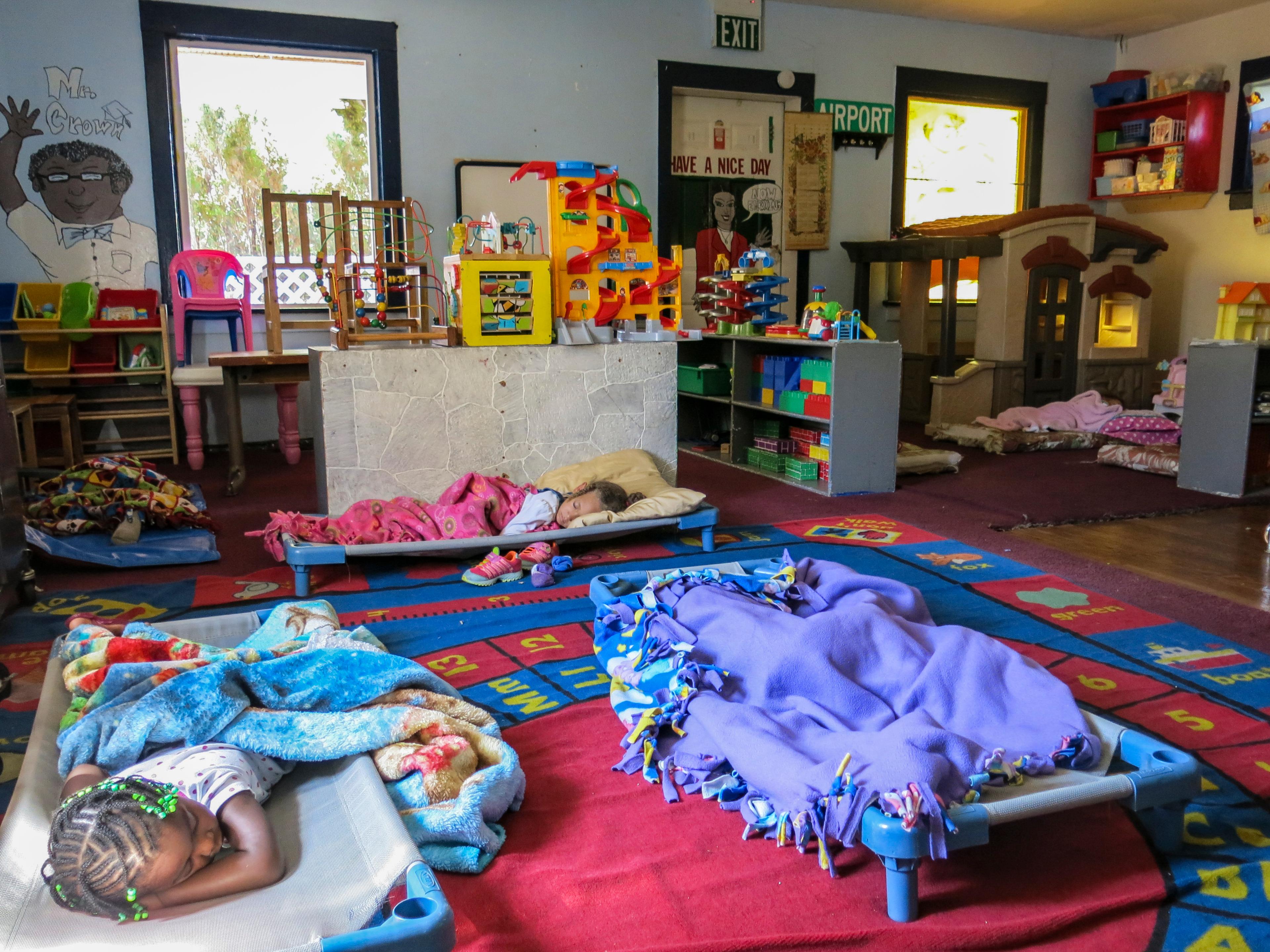
Colorado’s legislative session opens Wednesday with something unusual. For the first time since 2009, a lawmaker will be voting as an independent.
State Sen. Cheri Jahn, who represents District 20 in Denver’s western suburbs, quit the Democratic party in December. Jahn is not alone. Last summer former state lawmaker Ellen Roberts of Durango quit the Republican party. Roberts served as senate president pro tem while she was in office.
In a Facebook statement, Jahn described a “broken,” political system. “I’ve watched through the years and witnessed that there is more care about politics and those in power than serving people in the state,” Jahn wrote.
Jahn told Colorado Matters outside forces also influence the way parties vote, and contribute to the system's dysfunction.
"The outside groups and a lot of what we call dark money coming in, many times you don't know where that money is coming from, and they really have a lot of pull," Jahn told Colorado Matters. When Jahn was registered as a Democrat, Republicans held a one-vote majority in the state senate.
Roberts left the legislature in 2016. While she was there, she said, she disliked the expectation that she would vote strictly along party lines. Now, as a private attorney specializing in water law, she wants to avoid preconceived notions about her opinions.
She didn't want people to think of her first as a Republican, she said "but instead as more of a problem solver on some of these tough issues."
Before Roberts and Jahn, the last legislator to become unaffiliated was Kathleen Curry. She left the Democratic party in 2009 so she could continue to vote her conscience, she told the Denver Post that year. Curry lost her re-election bid in 2011.
Interview Highlights
Sen. Cheri Jahn on why she left the Democratic party and calls the two-party system "broken":
"What I found over the last few years, especially the last three to four years, there seems to be a lot more focus on what party should be in control, not what policies we should really look at and get solved for the people in the state of Colorado."
Former Sen. Ellen Roberts of Durango on why she left the Republicans to become unaffiliated:
“I think when people hear you belong to a party they immediately put a matrix of assumptions on you and where you're coming from in terms of how you approach a problem.”
Jahn on whether other colleagues also want to leave their parties:
“I cannot tell you how many times a colleague would come to me and say, ‘I wish I had your strength and your guts to vote how you just voted on that, because you're absolutely right, but I just can't go there. It would make this entity or that person, or whatever, angry.’ ”
Roberts on whether the two-party system should end:
“We've got some big challenges, both at the state and national level, but same-old, same-old isn't working. So how do we inject new thought, new ideas, and new people? This may be part of it.”
Ryan Warner: This is Colorado Matters from CPR News. I'm Ryan Warner. The state legislature is back in action in tomorrow and on the Senate side there'll be one less Democrat. Senator Cheri Jahn, who represents suburbs including Lakewood and Littleton, just became unaffiliated. Meanwhile, it also recently came out that Ellen Roberts, a former president pro tem of the Senate left the Republican Party last summer. In becoming unaffiliated these two joined the largest voting bloc in Colorado, over a million people, who aren't members of a party. Welcome to you both. Thanks for being with us. Senator CJ: Thanks for having us. ER: Thanks, Ryan. RW: Senator Jahn, in announcing your decision you said, "I didn't change. The system changed." What do you mean by that? CJ: Well, I started in the House in 2001 was my first session. We just had a tendency to really pull together to work together on some really tough issues. We had Ref C and it was very bi- partisan. RW: This had to do with state spending TABOR. CJ: That's correct. RW: Hugely controversial and yet there was common ground found you said. CJ: And the common ground was found because it was important to get it done for the state of Colorado. It was not based upon making one side look good or the other side look bad or vice versa. It was literally focusing on policy, and what I found over the last few years, especially the last three to four years, there seems to be a lot more focus on what party should be in control, not what policies we should really look at and get solved for the people in the state of Colorado. RW: Is there an issue that you think illustrates that or a nut the state hasn't been able to crack because of it? CJ: Well, I think transportation is a perfect example and I know my good friend Senator Roberts can tell you a lot about that, being in one of the rural areas. The focus seems to always be on the Denver area. We have a lot of rural areas that are hurting desperately in the transportation arena. We need to get together and haven't been able to do that. RW: Ellen, what tipped you over the edge to drop your Republican affiliation? ER: Well, these days I'm back home and I'm in the private sector and I'm working on policies, natural resources policies, so mostly forest health and water issues. I really didn't want partisan politics to be part of my world and that the people I work with didn't first think of me as a Republican, but instead as more of a problem solver on some of these tough issues. RW: That's interesting. You can't both be a Republican and a problem solver or at least that doesn't project. What do you mean by that? ER: Well, I think when people hear you belong to a party they immediately put a matrix of assumptions on you and where you're coming from in terms of how you approach a problem. The value of being unaffiliated is having more freedom, not being as confined by what are perceived either by others or party platforms in terms of your immediate go-to stance. RW: So, did you drop party affiliation in general or was there something specific about the Republican brand these days you distance yourself from? We're going to hear in a few minutes from a gentleman named Dan Butcher, who says he left the Republican Party specifically because of the president. Does President Trump have anything to do with this? ER: Well, I would say I was unaffiliated for decades before I got into politics myself and really did see it was a two-party system. The Republican Party is one that the core principles as listed out resonated with me and I like smaller government, lower tax burdens, etcetera. But when you get into the weeds, you start finding out that there's a lot more demands in terms of what it is that you supposedly represent. I would say that that's where as a former unaffiliated person I yearned to get back to the territory where I could say, "This is how I think." I would hope that people would ask me, rather than make assumptions, so really returning to unaffiliated is my comfort zone. RW: Was there something in the Republican platform perhaps or assumptions people made about you policy-wise that you're grateful to distance yourself from? ER: Well, sure. Even when I was in office, there were many times that I was told that I was not following the party line. RW: Give me an example. ER: I can…well, some of the social issues in particular. I believe in limited government, so I really thought that's more where I would belong on the social issues and it's not really the turn that the party took. That's the, I think, juggernaut that Senator Jahn and myself and others at the Capitol would struggle with, is to what point are you okay? I always liked Ronald Reagan's, President Reagan's, 80/20 percent that if you agree with people 80 percent of the time, you're probably in the right party. Those are your friends and allies and not 20 percent enemies. But I would agree with Senator Jahn that it's taken a bit of a turn, even at our State Capitol where people are looking for 100 percent or nothing. RW: Senator Jahn, you are term limited, so this is your last year in the Senate. You do hope to caucus with the Democrats. With your switch, there are 16 Democrats and 18 Republicans in the Colorado Senate, so that the margins are tighter there, certainly, than the Colorado House. You said in your announcement on Facebook, "The system is terribly broken." Isn't it easier, though, to fix a party from the inside, as opposed to leaving it? If you think there's a problem with the Democratic party, why not stay? CJ: Well, I have to tell you, I've tried to do that now for about 15 years. I am just really moderate. I'm a business owner, and so I have a different perspective on the finances and some of those issues than some of my colleagues do. When you're actually running a business, it's a little bit different than trying to just say what policies you think should work. Some of those policies just don't work. I am going to caucus by myself. I am not joining a caucus. I'm not taking sides either way, and so I'll just remain independent on my own. RW: So one pictures some unforgiving party leader whipping you about. "Get in line. You're deviating from the plan." Is that what happens? What did the discomfort look like, day in and day out, that you're trying to get away from? Let's be a bit more specific. CJ: Well, I think Ellen spelled it out very, very well. It's a matter of the expectations that it needs to be 100% all the time, and I'm not 100% anywhere all the time, except on, maybe on children's issues, and elders. RW: Really? So what happens if you disagree with the party? What are the consequences if you say, "I'm not in lockstep"? CJ: Well, there's a lot of outside interest groups now, I think, that are playing heavily, that didn't used to play, on both sides of the aisle, and there's always the threat of, "We're not going to be able to fund these campaigns if this doesn't happen. If we can't get this legislation passed, I just don't know if we're going to be able fund these campaigns," and that's just not how it should be. RW: So, it's not just a function of power within the party? CJ: No. RW: But it's some of those outside groups, who are perhaps closely aligned? CJ: To be really honest with you, I think that has a lot to do with what has happened. The outside groups and a lot of what we call dark money coming in, many times you don't know where that money is coming from, and they really have a lot of pull. RW: We did put a call out on Facebook, asking to hear from people who've left a political party. One response we got was from Joel Terrell of Longmont. He says he disagrees with leaders switching their affiliations after being elected, because it could be perceived as disingenuous. Another commenter went further on your own Facebook page, Senator Jahn, beneath your announcements, becoming unaffiliated. Quote, "I did not vote for an independent. I voted for a Democrat. Would you consider resigning so a Democrat can hold your seat?" How do you respond to that? CJ: Well, no, actually. My voting will never change. I will continue being independent, like I have always voted independent. That's just who I am. I will still be representing the values that I have always represented. That is not going to change at all, so I see no need to step down and have someone else taking my seat. Like I said, I haven't changed, my voting's not going to change, my philosophies aren't going to change, and my values aren't going to change. RW: Ellen Roberts, would you have made this decision, hypothetically, obviously, when you were still in office, or do you think it's just a totally different proposition? ER: I think each person has to decide for themselves where they're at, and I would like to say, and I'm sure Senator Jahn would agree. I want to honor everybody who's working at the State Capitol, whether they're Republican, Democrat, unaffiliated, it is a tough job, and we are asked to do an awful lot of things on a daily basis, in terms of making decisions with a limited amount of information. Those who choose to be in a party, I say, have at it. That works for them. But, there is a tipping point for some of us who are not comfortable in what I felt was confining, but while I was in office, I was willing to work with that. To your point earlier, can you make change from within the party? I think a lot of us who are now unaffiliated thought that would be the case, but it hasn't really opened up in that way, so for me, it fits better today to be unaffiliated. RW: Do you have a sense of how many colleagues secretly want to do what you did? CJ: I wish I did, but I have to tell you, the very interesting thing is, over the years, I cannot tell you how many times a colleague would come to me and say, "I wish I had your strength and your guts to vote how you just voted on that, because you're absolutely right, but I just can't go there. It would make this entity or that person, or whatever, angry." And so I have to tell you, I think there's a lot of people that sometimes wish that they would have a little more independent voice. I'm hoping that actually, maybe I can help to give strength to those to speak up when they need to speak up, because we represent everyone. We are not elected just to represent one party. RW: I want to push back on the culture that you portray at the State Capitol, one in which party is placed over policy. Don't we have proof every year that's not the case with the passage of the budget, which has to be bipartisan? Don't we have proof in the extra money that was found for transportation in the last session? Isn't it less dysfunctional than you're painting, Senator Jahn? CJ: Well, I'm not saying the whole thing is dysfunctional. Of course, we've had, we always have to balance the budget, which is a great thing. And we have to come to some very hard decisions to do that, so we do work together a lot on many, many, many issues. It is not completely dysfunctional, and that's not what I'm trying to portray. But I think even when you look at the national level, I see that kind of stuff trickling down to the state where it's digging in more on party lines. RW: Ellen Roberts, we have about 30 seconds. Is this the end, should it be, of the two party system? And I realize that's a big question and one that people have been asking for a long time. ER: I think it's a great question. I'd love to see in the future. I hope it opens up the conversations. We've got some big challenges, both at the state and national level, but same- old, same-old isn't working. So how do we inject new thought, new ideas, and new people? This may be part of it. RW: I'll say there's an organization in Colorado. It was once called the Centrist Project, now known as Unite Colorado. And, just today they're announcing a slate of four candidates, one running for state Senate, three running for state House, that are unaffiliated. And their idea is to get more centrists, more unaffiliated folks into government. Thanks to you both. We heard from Ellen Roberts of Durango, former President Pro Tem of the Senate, and State Senator Cheri Jahn, who represents parts of Lakewood, and Wheat Ridge. They both recently left their parties and became unaffiliated. |









